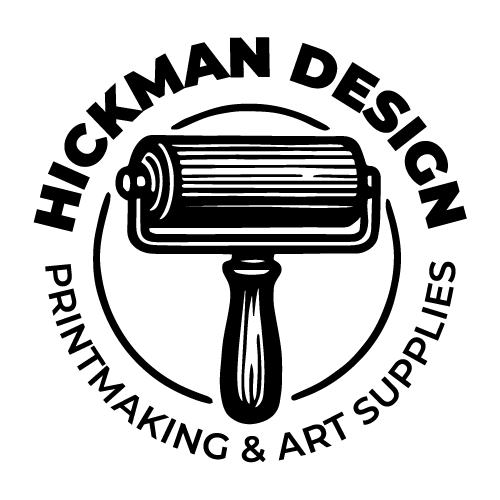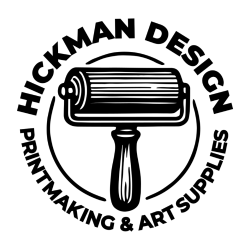Disclosure Sponsored Links: This post contains a paid-for sponsored link, meaning we have received compensation in exchange for including it. Sponsorship does not influence our content, but we believe in transparency regarding paid placements.
Effective communication with customers is crucial for building strong relationships and ensuring long-term success in today’s highly competitive business landscape. With the rapid advancement of technology, companies have an array of advanced software tools at their disposal to streamline and enhance their customer communication strategies. This article delves into the importance of effective customer communication, explores various advanced software tools, and provides practical tips for designing robust communication strategies.
Table of Contents
The Importance of Effective Customer Communication
Effective customer communication is the cornerstone of any successful business. It involves not only conveying messages to customers but also understanding their needs, preferences, and feedback. Here are some key reasons why effective customer communication is vital:
Builds Trust and Loyalty: Clear and consistent communication helps build trust and loyalty among customers. When customers feel heard and understood, they are more likely to remain loyal to the brand.
Enhances Customer Satisfaction: Timely and relevant communication can significantly enhance customer satisfaction. Addressing customer queries, concerns, and feedback promptly shows that the company values its customers.
Boosts Sales and Revenue: Effective communication strategies can drive sales and revenue growth. Personalized marketing messages and targeted promotions can encourage repeat purchases and attract new customers.
Improves Brand Reputation: Companies that excel in customer communication often enjoy a positive brand reputation. Satisfied customers are more likely to recommend the brand to others, leading to increased word-of-mouth marketing.
Advanced Software Tools for Customer Communication
To design effective customer communication strategies, businesses can leverage various advanced software tools. These tools facilitate seamless communication, enhance customer engagement, and provide valuable insights for continuous improvement. Here are some of the most popular advanced software tools for customer communication:
Customer Relationship Management (CRM) Systems
CRM systems like Salesforce, HubSpot, and Zoho CRM are essential for managing customer interactions and relationships. These platforms centralize customer data, making it easier for businesses to track communication history, preferences, and behavior. CRM systems also offer automation features for sending personalized emails, scheduling follow-ups, and generating reports.
Email Marketing Software
Email marketing remains a powerful tool for customer communication. Advanced email marketing software like Mailchimp, Constant Contact, and Sendinblue enable businesses to create, send, and track email campaigns. These tools offer segmentation and automation features, allowing companies to send targeted messages based on customer preferences and behaviours.
Live Chat and Chatbot Solutions
Live chat and chatbot solutions such as Intercom, Zendesk Chat, and Drift provide real-time communication channels for customers. These tools enable businesses to offer instant support, answer queries, and guide customers through their buying journey. Chatbots can handle routine inquiries, freeing up human agents to focus on more complex issues.
Social Media Management Tools
Social media platforms are crucial for engaging with customers and addressing their concerns. Social media management tools like Hootsuite, Buffer, and Sprout Social allow businesses to schedule posts, monitor interactions, and analyze performance across multiple social channels. These tools help companies maintain a consistent and responsive presence on social media.
Customer Feedback and Survey Tools
Collecting customer feedback is essential for improving communication strategies and overall customer experience. Tools like SurveyMonkey, Qualtrics, and Typeform enable businesses to create and distribute surveys, gather feedback, and analyze results. These insights help companies identify areas for improvement and tailor their communication efforts accordingly.
Customer Communication Management (CCM) Platforms
CCM platforms, such as the one offered by iMailComms, provide comprehensive solutions for managing customer communications across various channels. These platforms integrate with existing systems, allowing businesses to create personalized messages, automate workflows, and ensure consistent communication. CCM platforms are particularly useful for large orMeasure and Optimizeganizations with complex communication needs.
Designing Effective Customer Communication Strategies
Now that we’ve explored the advanced software tools available, let’s delve into designing effective customer communication strategies. Here are some practical tips to help businesses create robust communication plans:
Understand Your Audience
The first step in designing an effective communication strategy is understanding your audience. Analyze customer data to identify demographics, preferences, and behaviors. Segment your audience based on these insights to create targeted messages that resonate with different customer groups.
Personalize Your Messages
Personalization is key to effective communication. Use customer data from CRM systems to tailor messages based on individual preferences and behaviors. Personalized emails, recommendations, and offers can significantly enhance customer engagement and satisfaction.
Choose the Right Channels
Different customers prefer different communication channels. Some may prefer email, while others may prefer social media or live chat. Use customer data and feedback to determine the most effective channels for your audience. Ensure that your communication strategy includes a mix of channels to reach a wider audience.
Automate Where Possible
Automation can save time and ensure consistency in customer communication. Use CRM systems, email marketing software, and CCM platforms to automate routine tasks such as sending welcome emails, follow-ups, and reminders. However, be careful not to over-automate, as customers still value human interaction.
Be Timely and Responsive
Timely communication is crucial for customer satisfaction. Use live chat, chatbots, and social media management tools to provide real-time support and address customer queries promptly. Ensure that your team is trained to respond to customer inquiries and feedback in a timely manner.
Gather and Act on Feedback
Regularly collect customer feedback using survey tools and other feedback mechanisms. Analyze the feedback to identify areas for improvement and make necessary adjustments to your communication strategy. Showing customers that their feedback is valued and acted upon can enhance loyalty and satisfaction.
Continuously monitor and measure the performance of your communication strategies. Use analytics tools to track key metrics such as open rates, response times, and customer satisfaction scores. Use these insights to optimize your communication efforts and achieve better results over time.
Conclusion
Effective customer communication is vital for building strong relationships, enhancing satisfaction, and driving business growth. By leveraging advanced software tools and implementing well-designed communication strategies, businesses can stay ahead of the competition and meet the evolving needs of their customers.
From CRM systems and email marketing software to live chat solutions and CCM platforms, there are numerous tools available to enhance customer communication. In particular, CCM platforms like iMailComms offer comprehensive solutions for managing communications across multiple channels, ensuring consistency and personalization.
By understanding your audience, personalizing messages, choosing the right channels, automating routine tasks, being timely and responsive, gathering and acting on feedback, and continuously measuring and optimizing your efforts, you can create effective customer communication strategies that drive long-term success.
Incorporating these practices and leveraging the power of advanced software tools will not only improve your customer communication but also contribute to a positive brand reputation and increased customer loyalty. As technology continues to evolve, staying adaptable and innovative in your communication strategies will be key to maintaining a competitive edge in the market.








